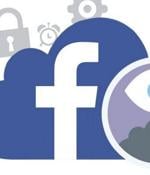Security News

UK Home Secretary Priti Patel will badmouth Facebook's use of end-to-end encryption on Monday evening as she links the security technology with paedophilia, terrorism, organised crime, and so on. The ever-popular politician will say at the National Society for the Prevention of Cruelty to Children event: "Sadly, at a time when we need to be taking more action, Facebook are pursuing end-to-end encryption plans that place the good work and progress achieved so far in jeopardy."

Pakistan shut down several social networks within its borders on Friday but lifted the ban after around four hours. The Register understands the ban covered Facebook, Twitter and YouTube, plus messaging services WhatsApp, and Telegram.

Ireland's privacy regulator said Wednesday it has opened an investigation into Facebook after data on more than 500 million users was reportedly found dumped online, in a suspected violation of strict European Union privacy rules. News reports earlier this month said the data was found on a website for hackers and contained information on 533 million users from more than 100 countries, including names, Facebook IDs, phone numbers, locations, birthdates and email addresses.

Mozilla volunteers have recently been flooded with online merchants and marketers' requests for their domains to be added to what's called a Public Suffix List. Public Suffix List is an initiative of the Mozilla community volunteers to maintain a list of top-level domains and domains that should be treated as one to prevent the mixing of cookies between distinct domains.

Facebook this week announced that in March it removed a total of 14 networks of accounts from its online services, for spreading deceptive content meant to manipulate public opinion. Emerging from a total of 11 countries, these networks included a total of 1,167 Facebook accounts and 290 Instagram accounts, as well as 255 pages and 34 groups on Facebook, the social platform announced.

The leak of personal data from more than 533 million Facebook users was scraped from their profiles by malicious actors because of a security flaw in the company's platform prior to September 2019, the social media giant said Tuesday. Threat actors posted that data to a public hacker forum over the weekend, once again raising privacy concerns and putting Facebook in the middle of controversy over its protection, or lack thereof, of user data.

From the Facebook data samples seen by BleepingComputer, almost every user record had a mobile phone number, a Facebook ID, a name, and the member's gender associated with it. Facebook has shed some light on the recent data leak comprising 533 million Facebook user profiles, data from which was posted on a hacker forum last week.

Facebook said Tuesday that hackers "Scraped" personal data of some half-billion users back in 2019 by taking advantage of a feature designed to help people easily find friends using contact lists. A trove of information about more than 530 million Facebook users was shared over the weekend at a hacker forum, prompting the leading social network to explain what happened and call on people to be vigilant about privacy settings.

Facebook users can now use the Have I Been Pwned data breach notification site to check if their phone number was exposed in the social site's recent data leak. This leak's main component is a Facebook user's phone number, rather than an email address, and thus Have I Been Pwned could not accurately alert a user if they were exposed in the breach.

Ireland's Data Protection Commission is investigating a massive data leak concerning a database containing personal information belonging to more than 530 million Facebook users. "Previous datasets were published in 2019 and 2018 relating to a large-scale scraping of the Facebook website which at the time Facebook advised occurred between June 2017 and April 2018 when Facebook closed off a vulnerability in its phone lookup functionality," the DPC said.